The average American has more than $100,000 in debt, and women face extra financial pressure from forces like the wage gap and pink tax. Amidst all this, how can you be a financially independent woman?
Learn more about women’s economic pressures and how to set yourself up for financial success.
What Financial Challenges Do Women Face?
When it comes to finances, we know that women face unique challenges. Income disparities, social expectations, and health outcomes all play a role in a woman’s ability to gain financial independence.
In the United States, the gender pay gap means that women still only make about 82% of what men do. According to Pew Research Data, many people believe this is because employers treat women differently when it comes to money, and women typically balance more family responsibilities. These disparities can be even more difficult to deal with for women who are caregivers and particularly for single mothers, who face unique costs.
Women also live longer than men, meaning they have more years to pay for, and often face higher healthcare costs in retirement. These rising expenses can lead to unexpected medical bills, making it important to explore medical bill consolidation options to manage those financial challenges effectively.
How Can a Woman be Financially Independent?
Don’t let these challenges scare you! Just because a woman faces unique circumstances doesn’t mean she can’t thrive. A wide range of knowledge and tools are available to help women gain independence.
Learn more about what financial independence means, and explore these six ways to take control of your money.
1. Learn Personal Finance Basics
Do you know what APR and DMP mean? If not, you’re not alone. All the acronyms and jargon can be confusing, especially if you’re just trying to pay your bills. However, a healthy financial outlook starts with a solid knowledge base.
Familiarize yourself with the basics. Identify what you already know and explore content about terms you’re less familiar with. Many banks provide educational content on their website, which is a great place to start. You may also learn from:
- Financial classes
- Books
- Social media
- Online videos
- Podcasts
If you need more personal guidance, connect with a financial advisor. Choose whatever learning style best suits you. The better you understand finances, the better able you are to implement smart financial strategies in your life.
Just so you know: APR stands for annual percentage rate, and DMP stands for debt management plan. You can learn more about these concepts—and 14 other helpful financial terms—in this finance vocabulary guide.
2. Evaluate Your Income
Now that you know about finances in theory, it’s time to look at your own practical application. The easiest place to start is with your income. How much money is coming into your account every month?
You may have a salary or hourly wages from a job. Income could be from a spouse, child support, or government benefits. Make sure you know how much money you receive every month and when you receive it. You should always know where your money is coming from to identify when problems arise.
As you pursue financial independence, you can add to your income with additional sources of revenue like a side hustle or investments. For married women in particular, personal income like this is one way a woman can be financially independent in marriage. Plus, if you suddenly lose your job or your support benefits, another income stream means you won’t be totally cut off from money while adjusting.
A broader range of income sources gives you greater stability in your financial situation.
3. Establish a Budget and Set Goals
So you have money. What do you do with it? When it comes to budgeting, the best tool you have at your disposal is information. Look at where your money is going.
A great first step is to evaluate what you’re already doing. Without a starting point, you can’t know how much money you need to spend or what changes are possible. Track all of your expenses, including:
- Fixed expenses. This includes recurring, predictable expenses like rent and car insurance.
- Variable expenses. This includes expenses that fluctuate or don’t happen on a predictable schedule, like groceries and healthcare.
You can do this manually with a spreadsheet or automate it with your bank’s tools or an app. Once you know what you typically spend, you can create a realistic budget and set goals for how to spend your money.
4. Tackle Debt
Debt is often one of the most overwhelming parts of financial management. While men have more overall debt than women, women generally carry more student loan debt and may struggle to correct their marital debt after a divorce.
No matter how well you budget, you can’t gain true financial freedom until you have a plan to tackle debt. Take stock of your debt and prioritize where to focus your efforts.
You should pay off debts with high interest rates first. Credit card debt from online shopping, for example, will take priority over paying off your mortgage because of the compounding interest that accrues on credit cards. A financial advisor or credit counselor can help you decide your best course of action.
If you aren’t in a place where you can pay off debts yet, learn how to deal with debt collectors.
5. Start Saving
Setting aside money can give you peace of mind and stability in the case of an emergency or a large unexpected cost. Start by simply opening a savings account with your bank. Keeping your checking and savings accounts separate gives you more control over where your money goes and how you use it. You can put a certain percentage of income into this account when you gain income.
As you build your savings, you can adjust how and where you save your money. You can build a specific emergency fund, save for a home, or put your money into a high-yield savings account to accrue more interest.
6. Build Investments
Investments are a long-term financial strategy that makes your money work for you. However, you shouldn’t wait until you have perfect finances to start investing. Investments typically work best when they have a long life to accrue interest and returns.
One of your investments should be a retirement plan. Because women live longer than men, they typically need more money to last through their retirement years.
If you have steady employment, most employers offer some type of retirement package, such as a 401k. Yet only half of workers participate in these plans. You should take advantage of your workplace retirement plan, especially if the employer matches your contributions to the account.
If you don’t have this option, you can still invest your money in various ways, including with an Individual Retirement Account like a Roth IRA.
How Can a Credit Counselor Help?
You don’t have to do it alone as you navigate your financial journey. If you need help learning more about finances or planning to get out of debt, a credit counselor can help.
The counselors at Debt Reduction Services understand the unique challenges that women face and can customize a financial plan to suit them. Learn more about the benefits of a credit counselor, and call us at (866) 688-3328 to schedule an appointment.













